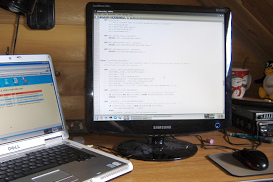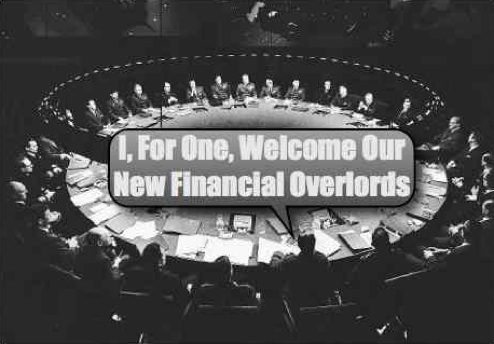Earlier this month, Volkswagen announced that an internal investigation into the carmaker’s use of “defeat devices” to evade emission standards in nearly 11 million vehicles worldwide uncovered a second issue: nearly 800,000 cars included understated levels of carbon monoxide emissions and rule usage. But a new report puts the timing of the finding into question, with some sources claiming executives with the car manufacturer knew of the problem more than a year ago. [More]
proposals

Proposed Keyless Ignition Alert Rule May Have Prevented Carbon Monoxide Deaths
A recently filed lawsuit alleges that 10 automakers concealed the risk of carbon monoxide poisoning in more than five million vehicles with keyless ignitions, resulting in 13 deaths. Meanwhile, a federal regulator’s four-year-old proposal for an alert that could have saved some lives continues to go unimplemented. [More]

Outline For Payday Lending Rules A Good Start, But Not Enough To Fully Protect Consumers
Today, the Consumer Financial Protection Bureau released the first details of long-awaited regulations governing payday loans and other small-dollar lines of credit known to thrust consumers into a devastating cycle of debt. While consumer advocates were quick to applaud the Bureau’s work, and those in the financial industry to voice displeasure with aspects of the potential rules, both groups agreed that the coming months will involve more time and effort to craft meaningful protections for both sides of the issue. [More]

Legislation Would Limit How Education Companies Use Students’ Online Data
With the use of technology now tightly tied to education, consumer advocates and parent groups have increasingly voiced concern about how student data is used. New legislation aims to alleviate worries over the exploitation of students’ personal information by placing restrictions on how that data can be used by third-party technology companies. [More]

SEC Wants Disclosures For Asset Backed Securities Written In Python
“Waterfall” provisions of asset backed securities are the rules that explain the flow of funds in the transaction, and they are are very hard to read. Blogger/professor Jayanth Varma calls them “horrendously complicated,” leading trustees to make mistakes or pull stunts that investors never expected. To remedy this, the SEC is proposing that the provisions be written in a programming language, filed on EDGAR, and made available as downloadable Python source code. [More]

Federal Reserve Proposes Rules On Gift Cards
Here’s your chance to sound off on another consumer protection issue. In accordance with the CARD Act, today the Federal Reserve proposed new rules that would protect consumers from fees and expiration dates on gift cards, and they’ll soon be accepting comments on the rules.

Treasury Secretary Calls For Supercharged Fed, Streamlined Regulatory System
Treasury Secretary Henry Paulson wants to consolidate the nation’s financial regulators into a tripartite gang that can save the economy from distress and doom. The plan to give the Federal Reserve broad new regulatory powers and streamline the regulatory community has been in the works since last March, before the start of the subprime meltdown. Paulson is worried that the U.S. markets are no longer competitive with maturing world markets, some of which aren’t hampered by nuisances like regulation. After the jump we’ll explain the consumer impact of the plan and introduce you to your three new regulators.

Fed Approves Plan To Curb Irresponsible Lending
The Fed has unanimously approved a new plan to tighten provisions designed to prevent predatory mortgage lending, as well as help to decrease the number of consumers who irresponsibly take on debt that they cannot afford to repay.

Media Consolidation Is Bad For Everyone
Bill Moyers produced an excellent segment on media consolidation and its disproportionate impact on minorities. African Americans and Hispanics account for over a quarter of the population, but own just 33 of the nation’s 1,350 television stations, and only 6% of radio stations. According to Melody Spann-Cooper, owner of Chicago’s only black-owned radio station:
Radio has moved from being in the business of empowering and educating people to Wall Street, to making money. And that’s not the big corporate conglomerates, you know, that’s not their fault. They were allowed to do this.

FCC Chairman To Relax Media Ownership Rules
Media conglomerates are preparing to feast on a banquet of local media outlets thanks to a resurrected proposal from FCC Chairman Kevin Martin. The Chairman wants to relax decades-old rules that bar media companies from owning both a newspaper and TV or radio station in the same local market. A similar proposal was presciently struck down three years ago by the Third Circuit Court of Appeals.
“Currently, a company can own two television stations in the larger markets only if at least one is not among the four largest stations and if there are at least eight local stations. The rules also limit the number of radio stations that a company can own to no more than eight in each of the largest markets.

Proposed FCC Rule Would Limit Comcast's Growth
FCC Chairman Kevin J. Martin circulated the proposed ownership cap to other commissioners Monday, said Rudy Brioche, a legal advisor to Commissioner Jonathan S. Adelstein.



